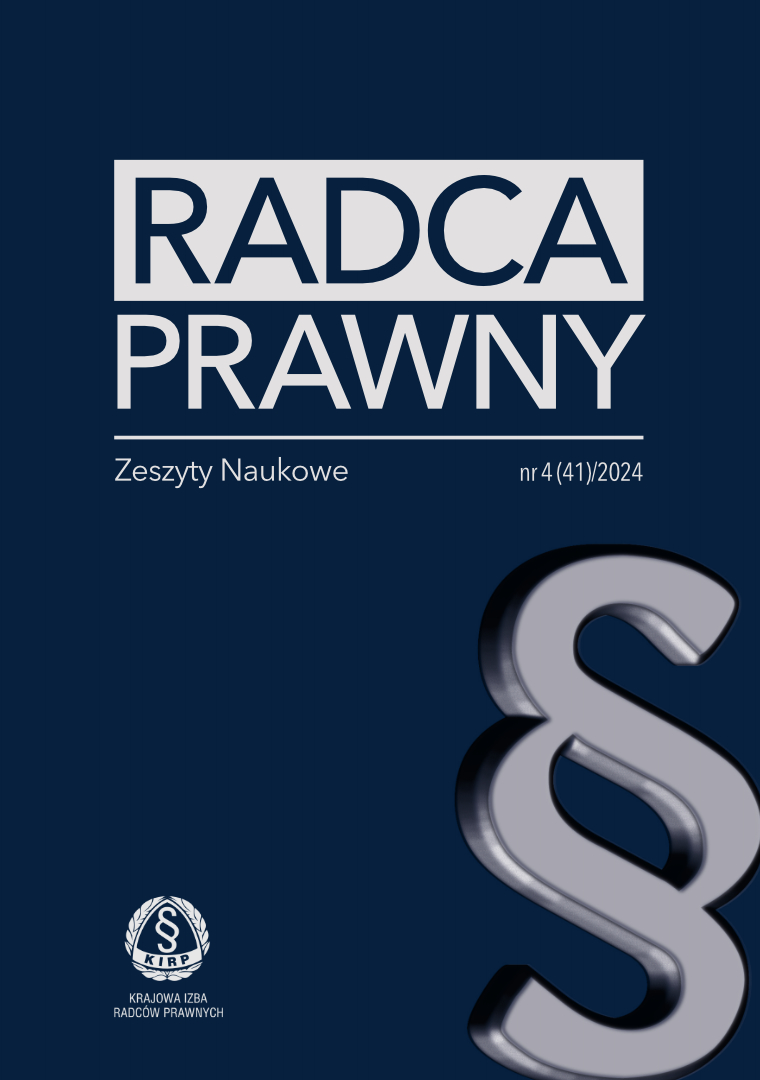Czy dyrektywa w sprawie ochrony osób zgłaszających naruszenia prawa Unii może być stosowana w Rzeczypospolitej Polskiej bezpośrednio? Przyczynek do dyskusji
Can the Directive on the protection of persons who report breaches of Union law be directly applied in the Republic of Poland? A contribution to the discussion
Author(s): Artur Biłgorajski, Ewa DrzewieckaSubject(s): Law, Constitution, Jurisprudence, Human Rights and Humanitarian Law, EU-Legislation
Published by: Wydawnictwo Uniwersytetu Jagiellońskiego
Keywords: direct application of European Union law; whistleblower; freedom of expression; Directive on the protection of persons who report breaches of Union law
Summary/Abstract: The article aims to attempt to answer the question of whether – in the face of the inaction of the national legislator – Directive (EU) 2019/1937 of the European Parliament and of the Council of 23 October 2019 on the protection of persons who report breaches of Union law (hereinafter: the Directive) can be applied in the Republic of Poland directly to potential whistleblowers concerning situations occurring in the period from the expiry of the deadlines provided for the implementation of the Directive to the date of entry into force of individual provisions of the Act of 14 June 2024, and if so, to what extent? In making this attempt, the authors of the study rely on the criteria developed in the case law of the Court of Justice of the European Union (hereinafter: CJEU) determining the possibility of direct application of directives and the modest practice of Polish courts in this area to date (three judgments). In the study, the authors present practical problems for potential whistleblowers resulting from the lack of transposition of the Directive; ratio legis and the essence of the institution of whistleblowing; its subjective scope, i.e. the circle of entities interested in the direct effectiveness of the Directive and its objective scope; the procedure for reporting infringements of the law and – against the background outlined above – the issue of the direct effectiveness of the Directive in the Republic of Poland. Within the framework of the latter issue, the authors not only present the main conclusions resulting from the case law of the CJEU and national courts but also interpret the most important provisions of the Directive from the point of view of a potential whistleblower in terms of the possibility of assigning their direct effect. The analysis conducted unequivocally leads to the conclusion that the Directive can be applied directly in the Republic of Poland, certainly in the period from the expiry of the deadlines for its implementation to the date of entry into force of the Act of 14 June 2024 on the protection of whistleblowers. This conclusion refers in particular to the most important articles from the point of view of potential whistleblowers: 15, 19, 21, 23 and 24 of this act. The study uses the dogmatic method and the method of case law analysis. Due to the submission of the article for publication before the date of filing the draft bill on the protection of whistleblowers, the analysis of the provisions of the Act of 14 June 2024 on the protection of whistleblowers (Journal of Laws 2024, item 928) is beyond the scope of this work.
Journal: Radca Prawny. Zeszyty Naukowe
- Issue Year: 2024
- Issue No: 4
- Page Range: 37-55
- Page Count: 19
- Language: Polish

